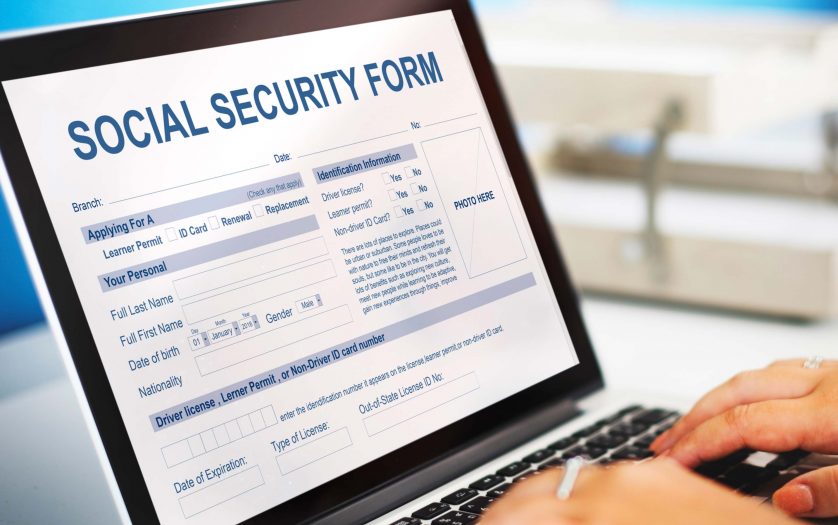How much does disability pay in the state of New Jersey?

In New Jersey, your monthly payout will be determined if you are eligible for Social Security Disability Benefits, which vary depending on the program.
Two programs offered by the Social Security Administration offer monthly benefits to people with incapacitating medical conditions if one has likely worked and contributed to Social Security for several years and applied to the Social Security Disability Insurance (SSDI) program.
One’s income, the length of your job, and the amount one contributed to the system will affect how much one receives each month. On the other hand, the SSA determines your maximum benefits if you claim assistance through Supplemental Security Income (SSI). Nevertheless, the amount might be reduced based on your income and available resources. Since SSI is a needs-based program, the average monthly benefits are much smaller than those provided by SSDI.
Supplemental Security Income Monthly Benefits Payments In New Jersey
A federal program called Supplemental Security Income gives monthly payments to people over 65 or with certain disabilities. Due to the needs-based nature of the program, applicants must also have restricted means of support. More specifically, a person’s resources and assets cannot be worth more than $2,000, and this sum rises to $3,000 for a married couple living together. A person’s housing and typically one vehicle are both excluded from this calculation by the SSA.
New Jersey frequently adds to your federal SSI benefits. Your monthly payment will be made up of both federal and state payments. Your income, resources, and living situation will all be considered when determining how much you receive.
For couples who both qualify, there is a higher amount available. The monthly SSI benefit for a couple who maintains their own house is $1,216.36. Couples who share a home with another person who provides financial support will earn $887.10 each. The couple’s SSI benefits are $1,929.36 if they live in a residential facility with a license.
The numbers above represent the maximum number of advantages. Your monthly payments can be reduced if you are eligible yet have additional sources of income and resources.
Social Security Disability Income Payments in New Jersey
To qualify, you must have a qualifying disability and accrued enough work credits in New Jersey to be eligible for SSDI compensation. Regardless of age, you must have earned at least 20 credits in the past ten years if you want to apply. Each year, four credits are available.
Your monthly payments will be determined by your annual salary and the number of years you worked because your FICA tax contributions fund SSDI. With an average monthly payment of $1,587.02 for people applying, New Jersey has the highest average monthly benefit in the country.
How to Apply For SSI and SSDI in New Jersey?
Depending on the type of benefits you want to apply for, the SSA offers a variety of ways to apply for disability. You can apply for SSDI online, in person, or over the phone if you meet the requirements. If you qualify for SSI, you can only register in person or over the phone (the majority of people aren’t able to apply for SSI online).
- Online resources (SSDI only): The SSA will give you an application number when you apply. So that you may access the program later or check on its progress, make sure to keep track of its number.
- Local branch offices: You can always apply at your nearby field office. You may locate your neighborhood field office using your zip code on the SSA website. Call your field office in advance if you need to schedule an appointment. By dialing 800-772-1213, an appointment can be set up.
Applying by telephone: Calling in an application might be simpler for you to apply by phone if traveling is challenging or your local office is far away. When you call, have your social security number on hand.
Whether you’re applying for SSDI or SSI payments, the Social Security Disability application process is complex. One aspect of the problem is meeting financial responsibilities. You must show that you have a qualifying medical condition expected to keep you from working for at least a year or result in your death.
Understanding the process might be challenging, even if you are familiar with the regulations and procedures. If you are unaware of what the SSA wants, assembling the required medical data and evidence will be next to impossible. More than half of all original claims are rejected, frequently due to insufficient medical proof.
Tips for Navigating Social Security
You can account for the numerous retirement sources of income, particularly Social Security benefits in New Jersey, with the aid of a financial counselor. Getting a competent financial advisor need not be difficult. You can question your advisor matches for free to choose which is best for you using SmartAsset’s free tool, which matches you with up to three local financial advisors. Start your search for a financial advisor immediately if you’re prepared to do so.
Form SSA-827 must be completed if you’re seeking Social Security disability benefits. By signing here, you are giving the SSA and Disability Determination Services (DDS) permission to see your medical records.
Managing a disability, whether temporary or permanent, is challenging enough without considering the financial implications. For unforeseen events like this, setting up an emergency fund can be quite helpful.
Difference Between SSI and SSDI
A comparison of the payouts from the various disability programs that the Social Security Administration oversees is also included. Direct disability payments (SSDI) and supplemental income benefits are provided through these programs. The SSDI benefits are for people with disabilities who require economic support. Adults with little assets and low incomes, as well as children with disabilities, receive SSI assistance.
Comparing the two Social Security benefits in New Jersey programs, you should know that SSDI benefits usually pay more. The benefits you would get through SSI in this situation are typically more than twice what you would get from disability. However, the outcomes may differ depending on the specific circumstances.
Conclusion
Disability benefits claims are known to be laborious and ineffective to process. As a result, many persons approaching retirement age who might be eligible for disability payments may enroll in Social Security a few years early rather than deal with the bother. On the other hand, this tactic can end up costing you a lot of money in the long run. Depending on age, choosing incapacity may be the more lucrative action. A financial expert could assist you in weighing your options.






